
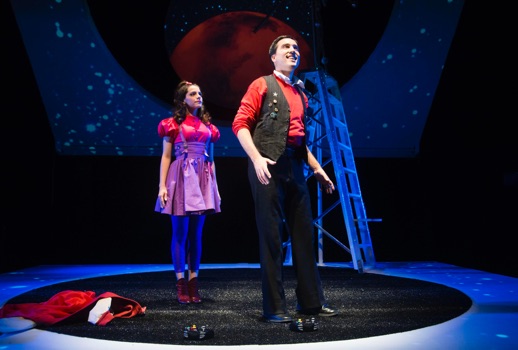
The staging is full of theatrical projections and symbolic forms, centering on a starburst that seems to combine a scientific representation of the Big Bang with a crucifix icon. The words and the music never quite coalesce—they largely ignore each other, space ships passing in the night—and what singing adds to this melange is not clear, despite the efforts of the small, impressive cast.
The program notes indicate the gestation of the show and, perhaps, where it went wrong. Larson, who is known for producing the libretto to Virgil Thomson’s disastrous third opera, Lord Byron and for a well-regarded translation of Stravinsky’s L’Histoire du Soldat, hoped to create a companion piece for the latter. Many producers of Soldat have wished such a thing existed, but without a simple fable and a Stravinsky to set it, it doesn’t seem likely to occur.
In The Astronaut’s Tale, Ab, a farmboy (like Stravinsky’s naive soldier) has few ambitions until a mysterious peddler named Peccavit (“he has sinned” ?) gives him a calculator and bids him look to the stars. In time, on the peddler’s recurring advice and not from, say, seeing the moon walk on TV, Ab decides to become an astronaut and joins the Air Force. Quick march through Basic Training (without music). He hopes to become the first man on Mars. He courts his girl, Ann, with this ambition, but she deplores his conversion to non-Biblical cosmology.
She comes around in time. He is chosen for an expedition. Peccavit, who keeps turning up with more advanced technology or scientific arguments, toasts the happy couple. Ab loses his wallet and has to cancel his credit cards. The expedition goes awry. Ann and Peccavit, forgetting their scientific atheism, sing a hopeful prayer.
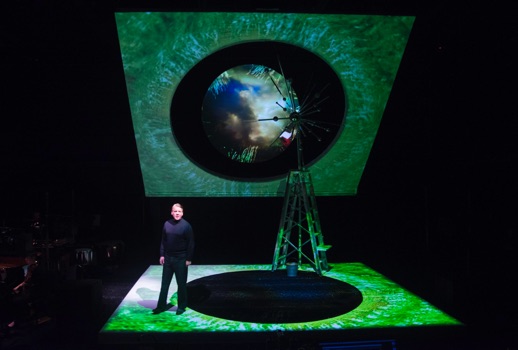
In opera, the music ought to be part of the storytelling. Fussell’s one gift as an opera composer is that (unlike, say, the atonal composers of the sixties and seventies), he understands voice and does not push singers to extremes in order to be expressive.
That there are no melodies to speak of makes one more impressed with the singers, Eapen Leubner does not look much like a farm boy or an astronaut, but he has a light, liquid, ingratiating tenor for the naïve Ab; it whites out on top but he is not obliged to stay there long.
Lianne Gennaco, who sings (and occasionally dances) the role of Ann, possesses a lyric instrument of considerable beauty to make her religious homilies and homebody satisfactions sound better than they are written.
Frank Basile, as Peccavit the Peddler, has a solid baritone, suavely produced and room-filling. The hymnlike duet of Ann and Peccavit was the only time in the evening where voices, melody, drama all seemed to be mingling in the proper proportions; there was opera in it. But it was the finale.
Full honors go to Stephen H. Carmody for the spare but intricate set, to Lianne Arnold for the handsome projections, to Sarah Johnston for the lighting, to Paula Poulafearh for the videography. Nicholas DeMaison led the seven-person band.














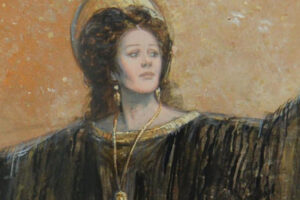
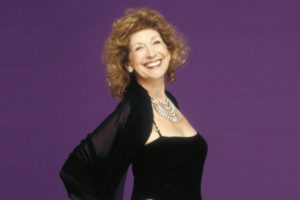
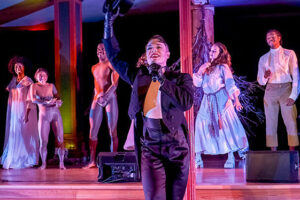
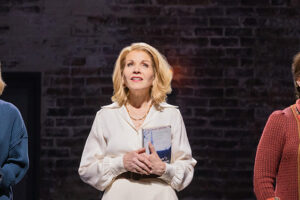





Comments